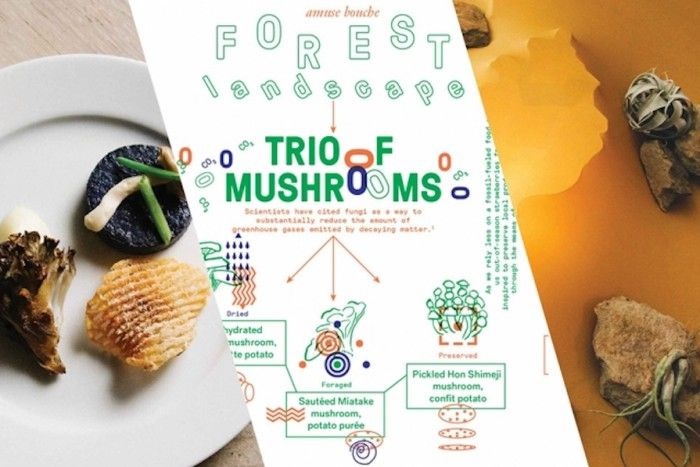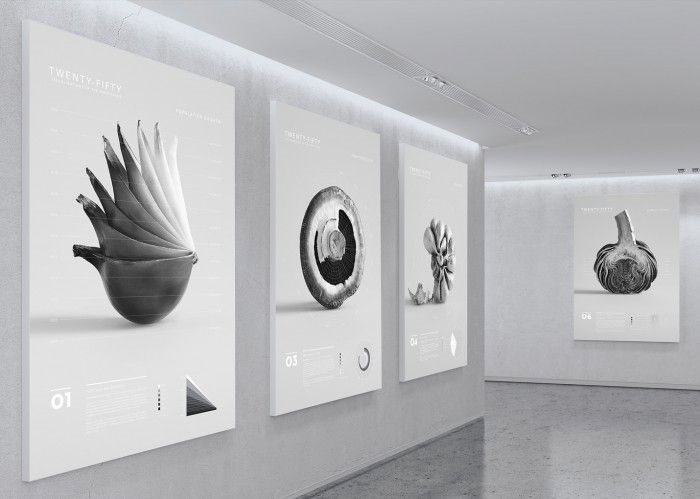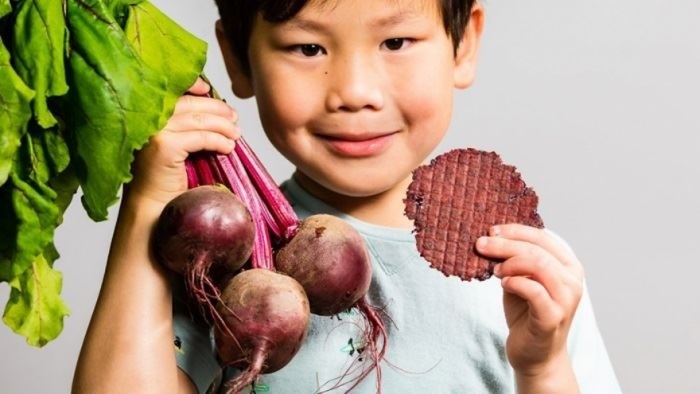For industrial designer and conservationist Alexandra Fruhstorfer part of the answer lies in some of the alien species causing problems in our forests and seas. Her project, Menu From The New Wild, includes a menu of ingredients made up of alien species exclusively.
Going a step further, she also designed crockery that shows the consumer which indigenous species they're protecting by eating off the bespoke menu.
Eating some of the wildlife and vegetation that threaten our ecosystem is one way of finding new food sources while helping to conserve our biodiversity. But MIT Joint Program Principal research scientist Erwan Manier and New York University artist Allie Wist recently got together at MIT to create a dinner menu of a different kind.
They hosted a symposium to try and get closer to understanding not only what we will likely be eating in the year 2050 but also whether diets will change to reflect a revamped agriculture designed to adapt to a warming world.
They examined how past, present, and future climate-related models can enable us to understand and design the built environment as significant changes unfold.
The symposium dinner consisted of four courses, each representing a different landscape, for example, the appetizer was a trio of dried, preserved, and foraged mushrooms, fungi known to help the soil store carbon dioxide and thus slow the pace of climate change.
While for the second course, representing the ocean, all diners ate wild striped bass, with one half receiving their fish filleted and the other half having to contend with bones.
"Our menu selections were designed to reflect the idea that the impact of climate change on various landscapes will vary widely based on the level of climate action that will take place between now and the year 2050," Monier told MIT News.
Monier added that climate models project crop-yield increases and decreases for different regions of Africa. This was translated into different landscape storylines for each of the four courses.
He said that depending on the severity of climate change, we will either be able to adapt to maintain our current diet or need to intensify the use of different drought-tolerant food sources like seaweed and cactus.
Meanwhile a few years ago, communications designer Gemma Warriner showed a series of eight data visualisation posters called Twenty-Fifty. The series is a visual exploration of the global food crisis predicted for the year 2050 – a result of the inability of the earth’s natural resources to meet future demand.
The project presents a series of eight data visualisation posters, each exposing one primary issue responsible for this future crisis.
But what about food waste? In South Africa alone, 10 million tonnes of food goes to waste every year. This is valued at about R61,5bn. Food designer Chloe Rutzerveld specialises in looking into this, specifically rejected vegetables. Her concept, Stroop, is a flat, sweet snack made purely out of veggie by-products.
From turning food waste into snacks to vegetable-based alternatives to meat, we have The Impossible Burger. Developed by a team of scientist, farmers and chefs, this burger is made using no animal products. Because they use 0% cows, the Impossible Burger uses a fraction of the Earth’s natural resources.
Compared to cows, the Impossible Burger uses 95% less land, 74% less water, and creates 87% less greenhouse gas emissions.







































